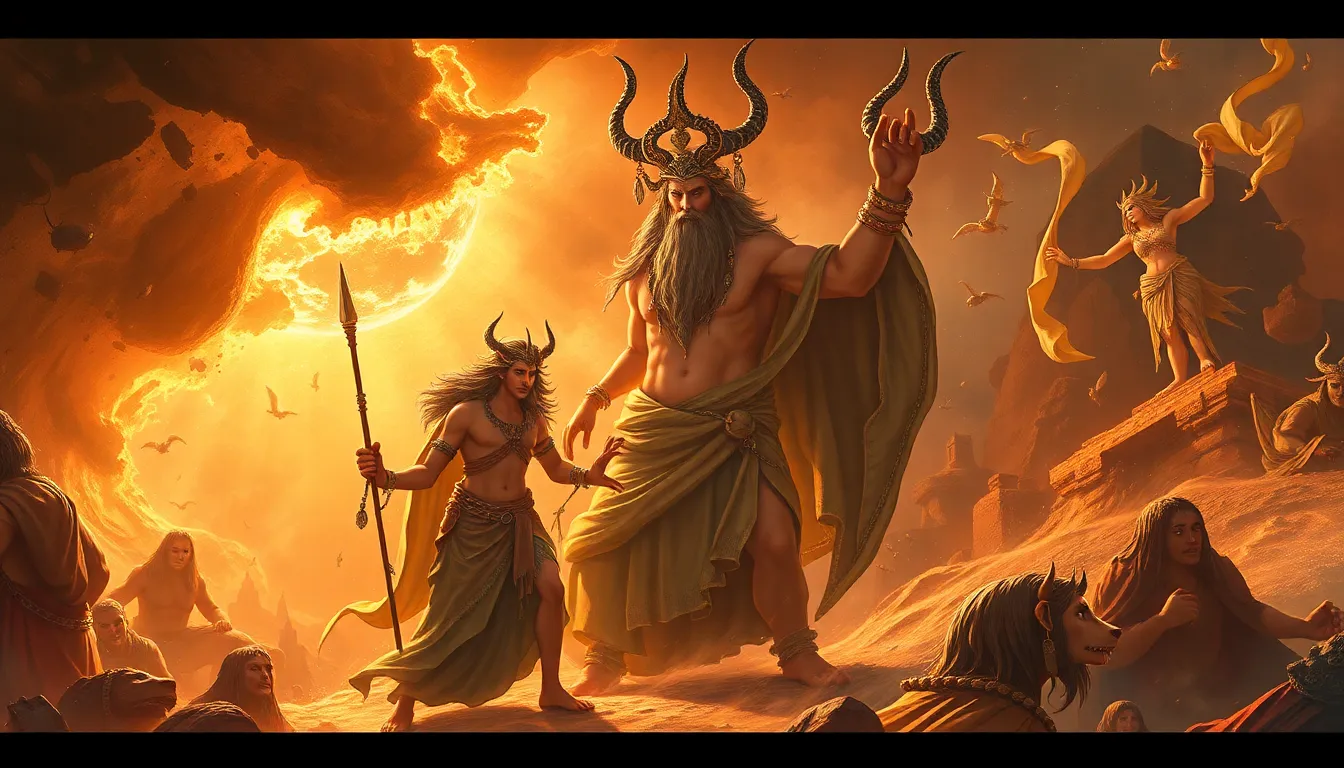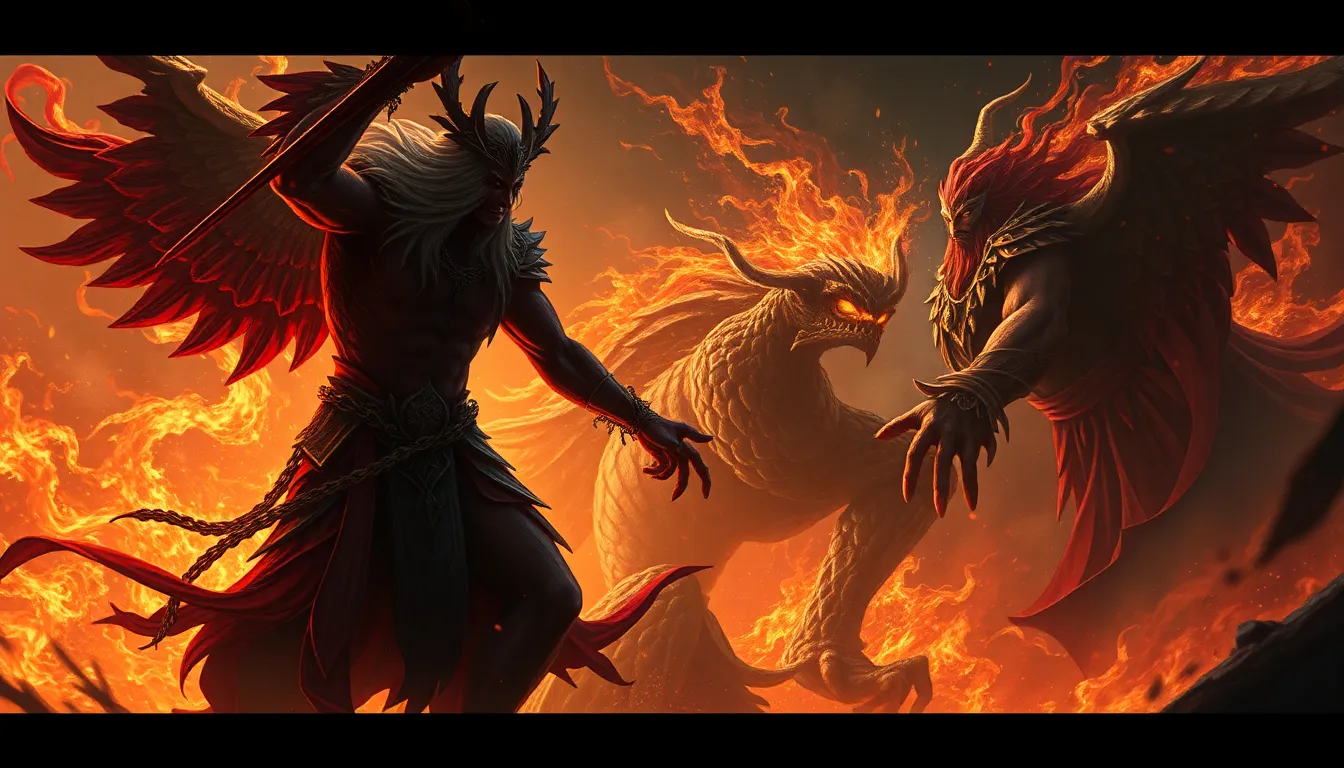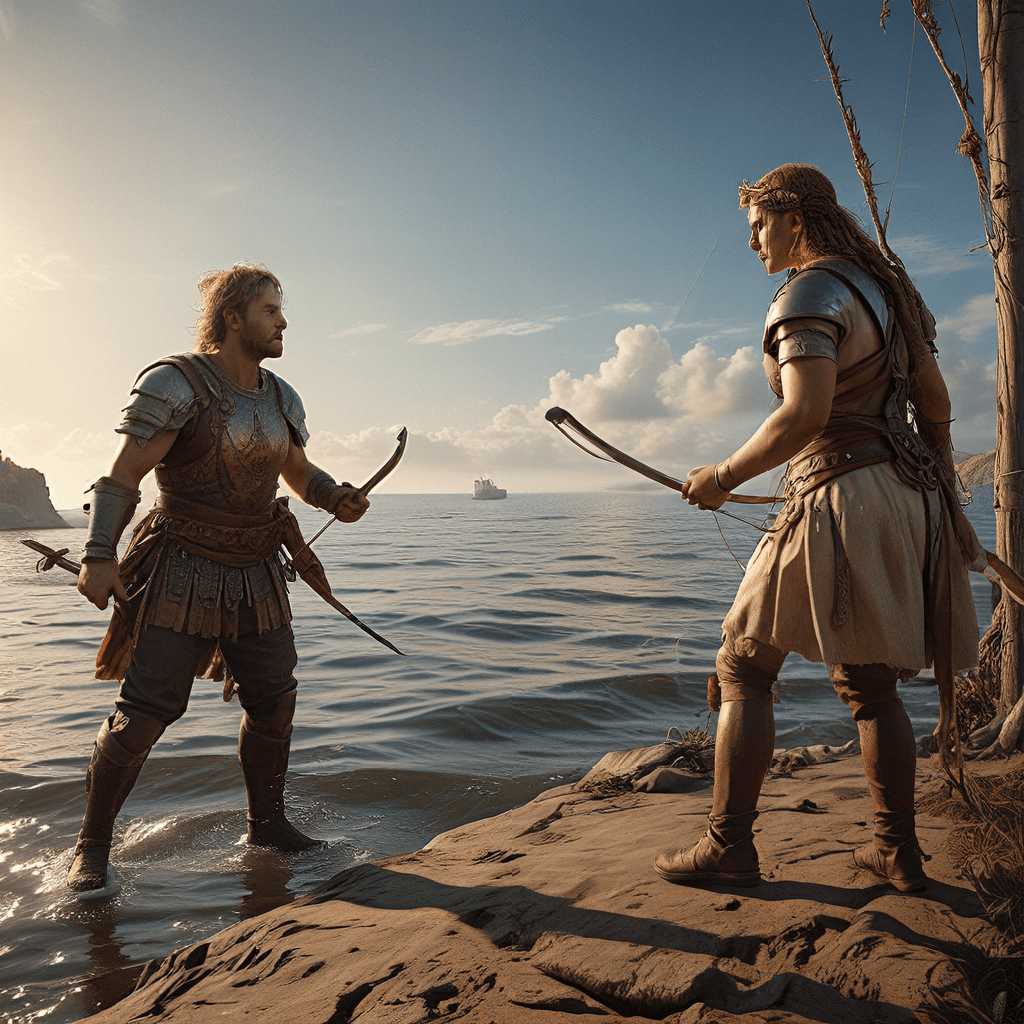The Fascinating Myths of Cultural Heroes in Different Cultures
1. Introduction to Cultural Heroes
Cultural heroes are figures in mythology who embody the ideals, values, and aspirations of a society. These heroes often emerge from stories that are passed down through generations, illustrating the traits that communities hold dear. They serve not only as characters in tales but also as symbols of hope, resilience, and moral guidance. This article explores the role of cultural heroes across various cultures, examining their significance and the myths that shape them.
Understanding cultural heroes is vital to grasping the broader context of mythology and its impact on societal values. Throughout history, these figures have played a crucial role in shaping collective identities, providing inspiration and a sense of belonging to their communities. In this article, we will embark on a journey through different cultures, uncovering the rich tapestry of myths that celebrate these heroes.
2. The Role of Mythology in Shaping Societies
Mythology serves as a lens through which societies can understand their world. It encompasses a collection of stories that explain natural phenomena, human behavior, and the values of the community. Myths often address fundamental questions about life, death, morality, and the cosmos, providing frameworks for interpreting the human experience.
Myths reflect societal values and norms by:
- Reinforcing cultural beliefs and practices
- Providing moral lessons and ethical guidelines
- Encouraging a sense of community and shared identity
Cultural heroes are central to this process. They often embody the virtues that a society admires, such as bravery, wisdom, and compassion. Through their adventures and challenges, these heroes inspire individuals to aspire to greatness and uphold the values that define their culture.
3. African Cultural Heroes: Anansi and Beyond
One of the most celebrated cultural heroes in African mythology is Anansi the Spider. Originating from the Akan people of Ghana, Anansi is a trickster figure known for his cleverness and resourcefulness. His stories often convey moral lessons about the importance of wit over brute strength.
Beyond Anansi, there are numerous other notable African heroes, such as:
- Sundiata Keita – the founder of the Mali Empire
- Shaka Zulu – a powerful leader known for unification and military strategy
- Ogun – the god of iron and war, symbolizing strength and perseverance
Trickster figures like Anansi play a significant role in African cultures, often challenging the status quo and teaching important lessons about humility, community, and the complexities of human nature.
4. Indigenous American Heroes: Legends of Resilience
Native American mythology is rich with cultural heroes who embody resilience and strength in the face of adversity. These heroes often reflect the deep connection between the people and the land, emphasizing harmony with nature and the importance of community.
A prominent example is Coyote, a central figure in many Native American cultures. Coyote is known as a trickster, a creator, and a teacher, whose stories often illustrate the challenges of life and the importance of adaptability. In the tales, Coyote’s actions reveal:
- The consequences of greed and pride
- The value of wisdom and cleverness
- The significance of balance in nature
These myths serve as a means of preserving cultural heritage, passing down essential lessons and fostering a sense of identity among Indigenous communities.
5. European Legends: From Beowulf to Arthurian Tales
European mythology boasts a plethora of cultural heroes, with figures like Beowulf and King Arthur standing out as iconic representations of bravery and honor. Beowulf, an epic hero from Anglo-Saxon literature, symbolizes the ideals of strength, loyalty, and the fight against evil. His battles against Grendel and the dragon illustrate the heroic journey and the struggle between good and evil.
King Arthur and the Knights of the Round Table represent the chivalric ideals of honor, loyalty, and bravery. The tales of Arthur’s quest for the Holy Grail and his battles against formidable foes embody the virtues that medieval society revered. Key themes in these European legends include:
- Bravery in the face of danger
- Sacrifice for the greater good
- The importance of camaraderie and loyalty
These heroes continue to inspire modern interpretations of courage and moral integrity.
6. Asian Cultural Heroes: The Wisdom of Confucius and the Strength of Genghis Khan
In Asian cultures, heroes often embody both intellectual and martial virtues. Confucius, a philosopher from ancient China, is revered as a cultural hero for his teachings on ethics, morality, and social harmony. His ideas have profoundly influenced Chinese society, emphasizing the importance of education and virtue in governance.
On the other hand, Genghis Khan represents a different aspect of heroism—military prowess and unification of diverse tribes. His legacy is complex, marked by both conquest and cultural exchange across Eurasia. The dual nature of heroism in Asian cultures reflects a balance between wisdom and strength, illustrating that heroism can manifest in various forms.
7. Middle Eastern Heroes: From Gilgamesh to Modern Icons
The Epic of Gilgamesh is one of the oldest known works of literature, featuring the hero Gilgamesh, who embarks on a quest for immortality. His journey explores themes of friendship, the human condition, and the quest for meaning, making him a timeless figure in Middle Eastern mythology.
In contemporary contexts, figures like Malala Yousafzai and Ibn Khaldun represent modern heroes who embody cultural values of education and resilience. These narratives often intersect with religious beliefs, showcasing how mythology and spirituality coalesce in hero stories.
8. Modern Adaptations and the Evolution of Cultural Heroes
In today’s world, cultural heroes are represented in various forms of contemporary media, from films and literature to video games and social media. These modern adaptations often reinterpret traditional myths, making them relevant to new audiences. Globalization has influenced these representations, leading to a blending of cultural narratives.
Examples of modern reinterpretations include:
- The portrayal of superheroes in comic books and movies
- Retellings of classic myths in young adult literature
- Documentaries highlighting historical figures as cultural icons
Such adaptations allow cultural heroes to resonate with contemporary issues, encouraging new generations to engage with their heritage.
9. The Universal Themes Found in Cultural Myths
Across various cultures, certain themes emerge as common characteristics of cultural heroes. These include:
- Sacrifice for the greater good
- Bravery in the face of adversity
- Moral dilemmas and the quest for justice
Storytelling remains a vital aspect of human experience, allowing societies to transmit their values, beliefs, and history. The tales of cultural heroes serve not only as entertainment but also as important lessons that continue to shape individual and collective identities.
10. Conclusion: The Enduring Legacy of Cultural Heroes
Cultural heroes hold significant importance in today’s society, acting as symbols of hope, resilience, and moral integrity. As we explore the stories of these heroes from various cultures, we gain insight into the values that continue to inspire future generations.
It is essential to appreciate and preserve these cultural narratives in an increasingly globalized world, ensuring that the wisdom and lessons of our ancestors are not lost. By honoring the myths of cultural heroes, we can foster a deeper understanding of our shared humanity and the diverse tapestries that comprise our global culture.




